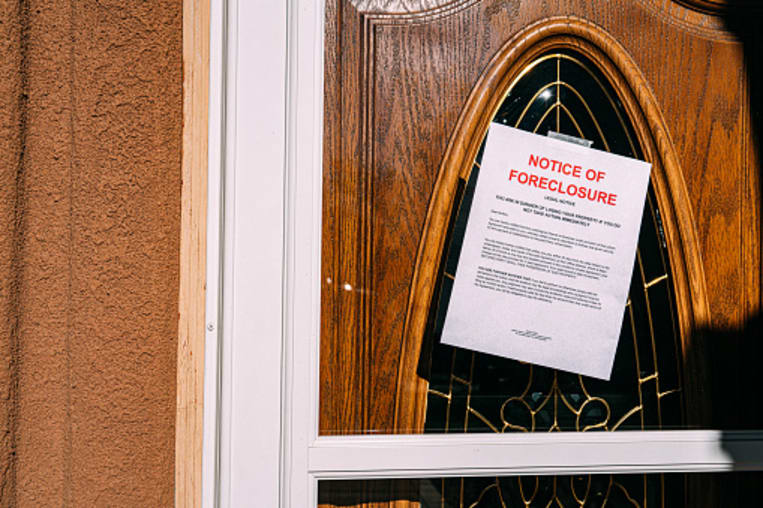
BBB Scam Alert: Protect your home. Spot the signs of deed theft

(Getty Images)
This scam targets homeowners who are already financially vulnerable, leaving them buried in debt or even homeless. Here's how to spot the signs of deed theft before it is too late.
How the scam works
You are behind on your mortgage payments and live in an area with a hot real estate market, such as New York City. Someone contacts you, claiming to be a "foreclosure specialist" or similar title (in reality, scammers are using public records to find homeowners who are in foreclosure or behind on their mortgage). This person seems trustworthy and empathetic to your financial struggles. Even more importantly, they have a plan to help you keep your home!
In some cases, this "foreclosure specialist" offers to help modify your mortgage and lower your payments. But first, you need to sign a few legal documents. If you don't read everything carefully, or if you allow the con artist to fill in documents after you've signed, you may well sign something that transfers the title of your home to the scammer.
In other cases, scammers may ask you directly to sign over your home deed for "safekeeping." They may promise that your property will be transferred to a trusted relative, so you can avoid foreclosure until your finances are back in order. Scammers then transfer your home to their name or the name of a shell company. If the document is notarized and filed with the County Clerk, the house will technically belong to the scammer.
Once you've signed over your deed, scammers may require you to make monthly "lease" payments. Eventually, they will evict you and take possession of your home. In either case, getting your home back after you willingly signed over the deed, even if a scammer misled you, is a very long and difficult process.
How to avoid deed theft
- Refuse to sign over your deed. Don't let a scammer pressure you to sign over your home in return for repaired credit or avoiding foreclosure. If you sign over your deed to someone else, there's no guarantee you'll get it back.
- Watch out for high-pressure offers. Scammers often use high-pressure tactics to provoke an emotional reaction in their victims. If someone pressures you to act or says you'll lose your house if you don't accept their "help," be wary. You are likely dealing with a con artist.
- Stay alert to false promises. Scammers often pose as foreclosure rescue specialists who can guarantee your home is safe if you accept their services. Keep in mind that a legitimate business won't make promises they may not be able to keep.
- Get help from trustworthy sources. If you are behind on your mortgage or other bills or have received a pre-foreclosure notice, contact a local housing counseling organization to get help. In the United States, see this list of government-approved housing counseling services.
For more information
Learn more about a variation on this scam that targets owners of second homes. If you spot a scam targeting homeowners, report it at BBB.org Scam Tracker.
Visit BBB's Home HQ for more tips and advice.
Still Need Assistance?
Contact Your Local BBB
Your local Better Business Bureau can assist you with finding businesses you can trust. Start With Trust®.
Additional Resources
Central Ohio BBB Business Podcast